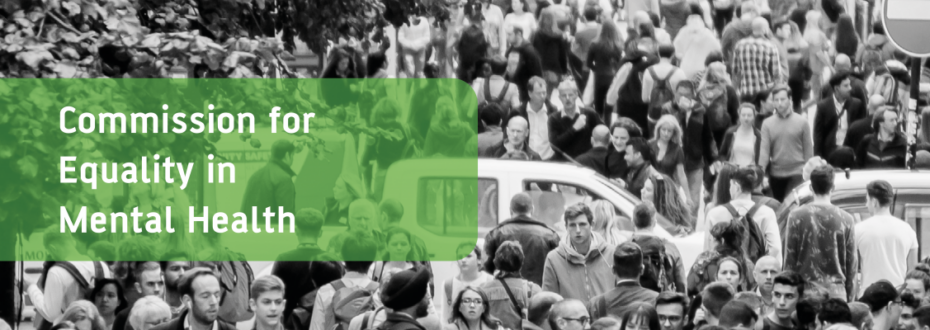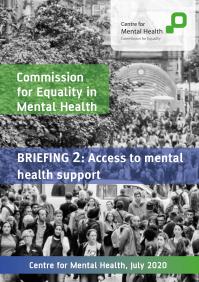Access to mental health support
Why are groups that face higher levels of poor mental health experiencing the greatest difficulty in accessing services? And what can we do to ensure that everyone is able to access the right mental health support for them?
National policies and strategies to increase access to mental health support have successfully expanded what’s on offer in many areas. But they have paid less attention to whether the existing offer is right for everyone. Most policies focus on increasing supply of the type of services that already exist. While this is a necessary step to address the disparity between mental and physical health in the NHS, it is not sufficient to meet the needs of many people. It is services, not the people they intend to serve, that need to change to make themselves more accessible, acceptable and appropriate to people’s needs.
The Commission for Equality’s second briefing explores these inequalities in access to mental health services, identifying the factors that make services inaccessible, and sharing ideas that could improve access to support for people who experience inequalities. If the NHS Long Term Plan’s vision of a ‘whole population’ approach to mental health and the Government’s ambition to reduce health inequalities are to be realised, equal access cannot be left on the margins of mainstream policy or practice. It must be at the heart of efforts to improve health and care nationwide during the next decade.
Ideas for actions that could help to address inequalities in access to mental health support that have been shared with the Commission so far include:
- Improve access to wider choice of flexible support
- Prioritise links between statutory services and community organisations
- Invest in user-led and peer support groups
- Commission and design services in partnership with the people who need them
- Adopt trauma-informed approaches
- Develop a workforce that more closely reflects the local population
- Include equality measures in mental health service access standards
- Strengthen the Public Sector Equality Duty





